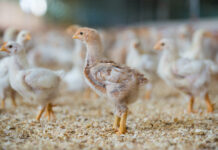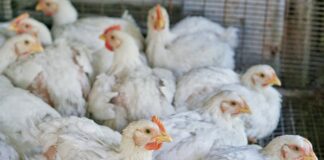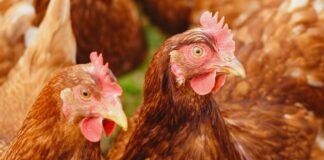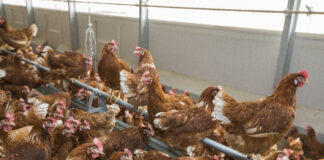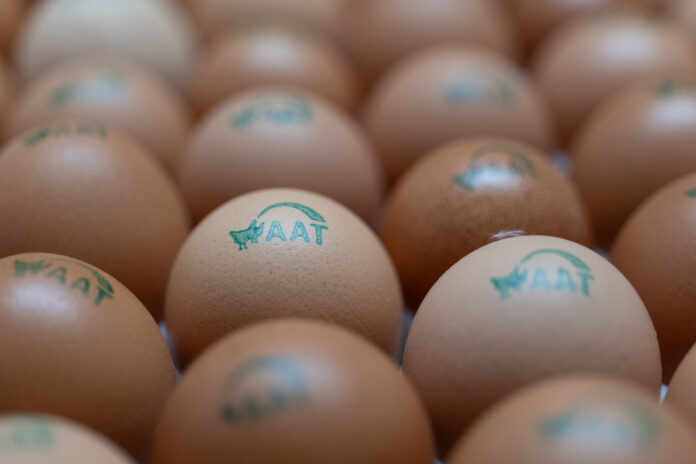
Efficiency and innovation are shaping the future of the egg industry. In modern egg  production, every step, every resource – and every animal – counts. Every unused resource costs money – and in the egg industry, over 7 billion day-old male chicks are culled after hatching for no economic benefit, making egg production an ethical and economic issue.
production, every step, every resource – and every animal – counts. Every unused resource costs money – and in the egg industry, over 7 billion day-old male chicks are culled after hatching for no economic benefit, making egg production an ethical and economic issue.
Countries such as Germany and France have already banned the culling of male chicks, and regulatory pressure is also growing in other markets such as Italy. In addition to legislation, another driving force is the changing awareness of end consumers, restaurants, and food retailers, who are increasingly paying attention to sustainability and animal welfare – and not just in the EU, where over 20% of laying hens are already sexed in-ovo.
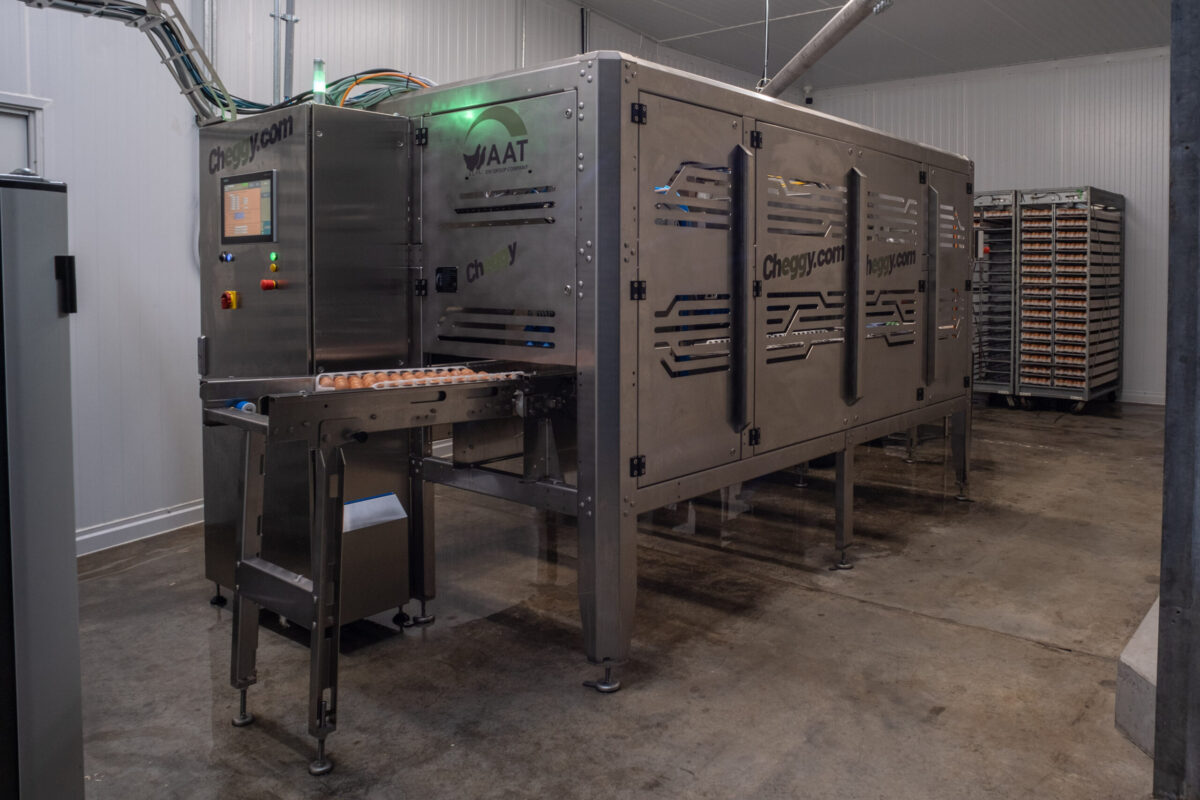
In-ovo sexing with CHEGGY worldwide – A step forward
Following the placement of twelve machines in Europe, the first CHEGGY units have been in use in the USA since December 2024. They enable regular commercial sexing in two hatcheries in Iowa and Texas, so the first eggs from sexed hens can already be purchased in supermarkets, in response to popular demand in recent years, with 64% of U.S. consumers agreeing that the egg industry should adopt in-ovo sexing.
Similar demands are now being voiced in Brazil – even louder: a recent survey conducted a strong discomfort with the egg industry’s practice. 76% believe industry should find an alternative solution. However, once the concept was explained, 72% of the participants agreed that industry should adopt in-ovo sexing technologies. So, this published survey, in which the Brazilian population expressed great interest in egg sexing, shows that large egg producers such as Brazil are also a substantial market for in-ovo sexing. This is in line with our construction of a machine in Nova Granada, Brazil. CHEGGY makes it now possible to determine which eggs are suitable for laying hen production at an early stage of incubation – to the benefit of Brazilian breeders, producers, and consumers.
CHEGGY technology
The CHEGGY technology was developed by Agri Advanced Technologies (AAT). By using the state-of-the-art hyperspectral analysis to determine the sex of the embryo without penetrating the eggshell, the non-invasive method reduces the risk of infection or other complications, and ensures a high hatchability rate without the need for a surplus of hatching eggs – a significant advantage over biochemical methods.
The technology enables the reliable inspection and sorting of up to 25,000 eggs per hour with an average accuracy of over 97%. CHEGGY is therefore the fastest technology of its kind and enables scalable and efficient implementation in industrial hatcheries. On the one hand, the incubated eggs only have to be removed from the incubators for a short time, which minimizes hatching losses, and on the other hand, it is also possible to process the large quantities that are usual in commercial hatcheries without any restrictions in the normal operating process; extra shifts or night and weekend work are not necessary.
Compared to the other in-ovo sexing machines, CHEGGY’s scale of only 15 m2 allows it to be installed in almost all hatcheries without the need for extensive structural modifications. In addition, the purely optical process, which combines the images from the hyperspectral cameras with special software and evaluation algorithms, impresses with its low energy consumption and minimizes running costs and, ultimately, also the costs for the end user – being the best of its kind.
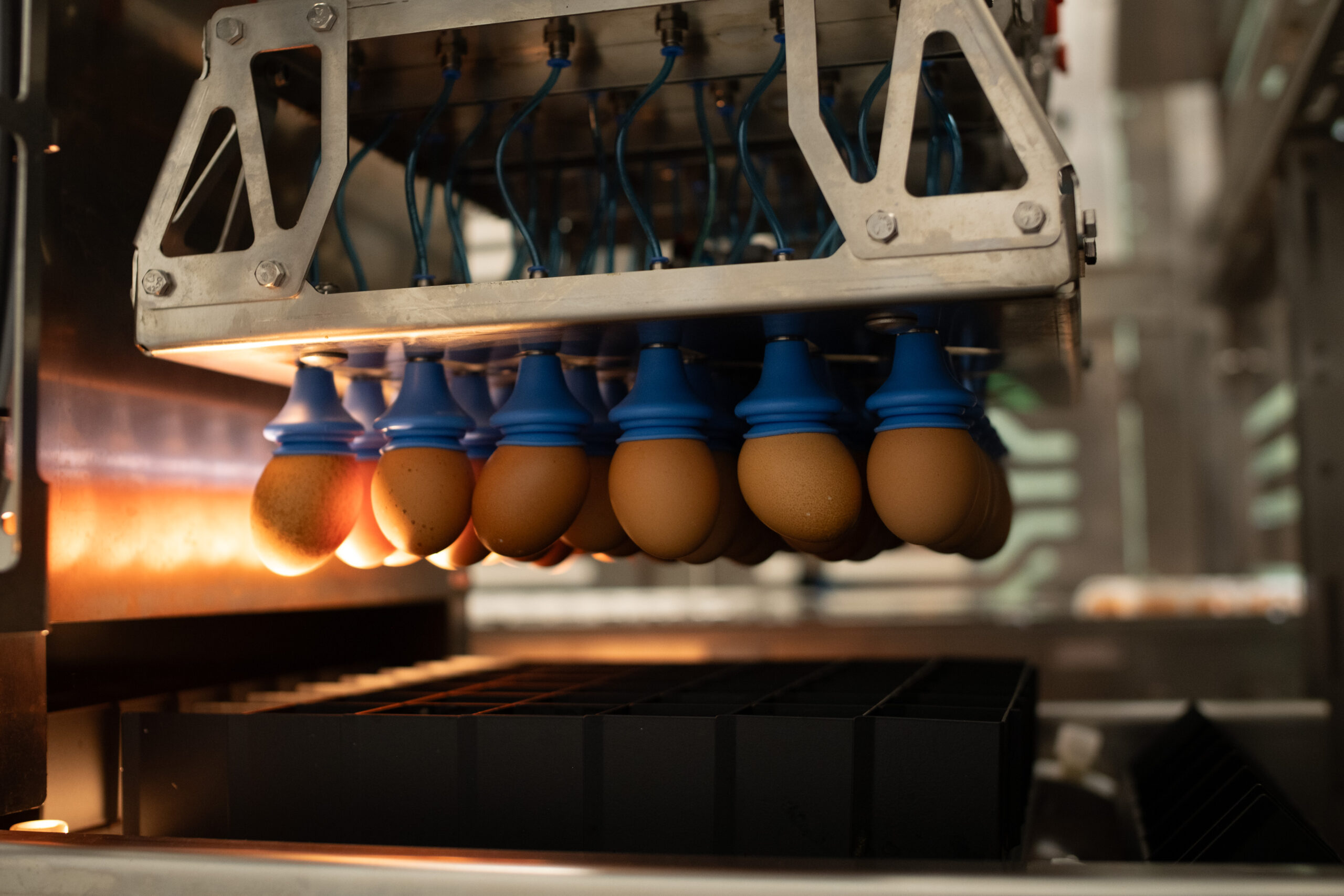
Investment with strategic advantages
Another advantage is its ability to detect unfertilized eggs. This not only maximizes the use of the entire hatching capacity but also saves additional energy – the entire production process is made even more environmentally friendly and resource efficient, which is important for companies that want to focus on sustainable practices and optimize their processes.
Growing awareness of animal welfare also means that consumers are willing to pay a premium for eggs from animal welfare-compliant production. Certifications such as ‘Certified Humane’ or ‘Approved Hatchery Operations’ make it possible to justify the resulting price premium of just a few cents per dozen eggs – without compromising competitiveness. This marginal premium is seen as a justified contribution to considerable ethical added value.
By adopting in-ovo technologies at an early stage today, companies will be well-prepared for the regulatory challenges of tomorrow. Eggs sexed with CHEGGY not only represent a technical innovation but also offer a valuable economic opportunity to position themselves as pioneers of sustainable farming.
The next step for an innovative egg industry – CHEGGY is making it real.



